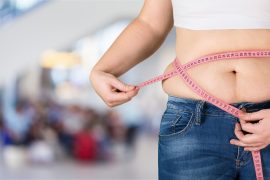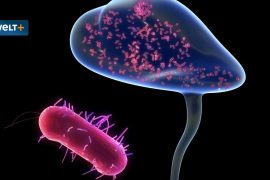study results
Basel research team finds: Antidepressants work better with good bacteria
A research team from the University of Basel and the University Psychiatric Clinic has now shown in a study that probiotics can support therapy with antidepressants.

The composition of intestinal bacteria can have a positive effect on the healing process in depression. (icon picture)
Gut bacteria affect the nervous system. This has been known for a long time. Researchers from the University of Basel have now discovered that probiotics may support the effects of antidepressants. As can be read in the university statement, it is known from previous studies that patients with depression suffer “above average” intestinal and digestive problems.
When the intestinal flora of depressed people was transplanted into rats that were reared sterile, a change in their behavior was observed: contrary to their plot, they showed less interest in their surroundings and had less energy, among other things. . Hence the researchers’ notion that “the composition of the bacterial community in the gut plays an important role in depressive symptoms.”
Four weeks of probiotics support better condition
Studies on the effects of probiotics worked out as follows: Of 47 patients in university psychiatric clinics who had to be hospitalized for depression, 21 received a probiotic in addition to antidepressants. 26 people received a placebo. Neither the study participants nor the study staff knew who received the placebo and who received the probiotic during the 31-day study period. Researchers subjected study participants to a series of tests immediately before treatment, at the end of 31 days, and again for four weeks.
Result: The condition of all patients improved. However, the improvement was significantly greater in those taking probiotics in addition to antidepressants. Later the intestinal flora has also changed. They had more lactic acid bacteria. Because this change subsided again in four weeks after taking probiotics, one of the study’s first authors, Anna-Chiara Schaub, suspects: “Four weeks of treatment may not be long enough and the new composition of the intestinal flora may not change.” Only stabilizes. After a long time.»
normalization in the brain
The researchers reached another conclusion using functional magnetic resonance imaging. When viewing neutral and fearful faces, brain activity returned to normal in participants who took probiotics for four weeks — but not in the placebo group. This is important because some brain regions involved in emotional processing behave differently in people with depression than in mentally healthy people.
One hope of the research is to use the study to determine the ideal mix of bacteria to better support the healing process of people with depression. However, it is always an accompaniment, as probiotics alone are not an effective therapy, stresses Anna-Chiara Schaub.

Web guru. Amateur thinker. Unapologetic problem solver. Zombie expert. Hipster-friendly travel geek. Social mediaholic.





